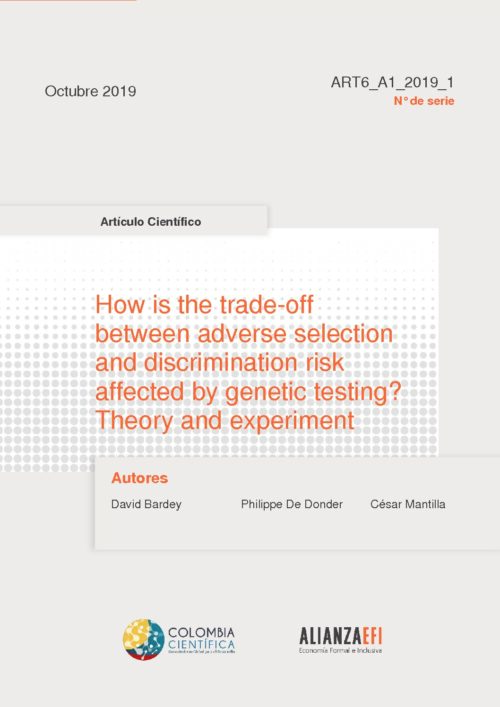We develop a theoretical analysis of two widely used regulations of genetic tests, Disclosure Duty and Consent Law, and we run an experiment in order to shed light on both the take-up rate of genetic testing and on the comparison of policyholders’ welfare under the two regulations. Disclosure duty forces individuals to reveal their test results to insurers, exposing them to a discrimination risk. Consent Law allows them to hide any detrimental information, resulting in adverse selection. The experiment results in much lower genetic tests take-up rates with Disclosure Duty than with Consent Law, showing that subjects are very sensitive to the discrimination risk. Under Consent Law, take-up rates increase with the adverse selection intensity. A decrease in the test cost, and in adverse selection intensity, both make it more likely that Consent Law is preferred to Disclosure Duty.
Autores:
- César Mantilla
- David Bardey
- Philippe De Donder
Palabras clave:
- Consent Law
- Disclosure Duty
- Personalized Medicine
- Pooling health insurance contracts
- Test take-up rate
Categorías:
- Proyecto 6
- Publicación
